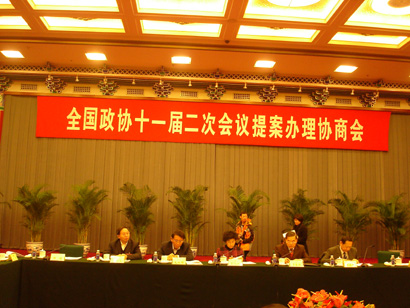By staff reporter He Shan
As overseas markets wane, thousands of export-driven factories along China's coastline have fallen victim to the global downturn, driving legions of migrant workers back to their hometowns in the countryside.

At the ongoing session of the Chinese People's Political Consultative Conference, advisers get down to the most pressing problem on the table. There is a broad consensus among them that the situation is grim and that measures should be taken as soon as possible to avoid further damage.
According to data from the Ministry of Agriculture, about 20 million of the estimated total of 130 million migrant workers – considered to be the cornerstone of China's once sizzling economy – have been forced to return to rural areas after the job market began to dry up in the fourth quarter of 2008.
At the same time China is moving up the manufacturing sector ladder, from churning out cheap goods that require unskilled or low-skilled workers to more advanced and value-added products, adding to the severity of the problem and the size of the challenge facing the government.
"For some migrant workers who have no job in the city and who are denied the last resort of returning to the land after leasing or transferring their land-use rights to others, the situation is worse," said Li Bin, a member from southwest China's Guangxi. "The government should offer them the immediate help they need before they become a source of social unrest."
The government has adopted a series of favorable policies to help the returnees start their own business in their hometown, including increased subsidies, greater access to loans, job-training programs, and more funds for rural development projects.